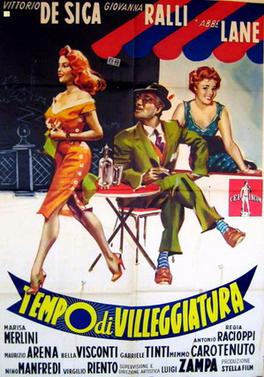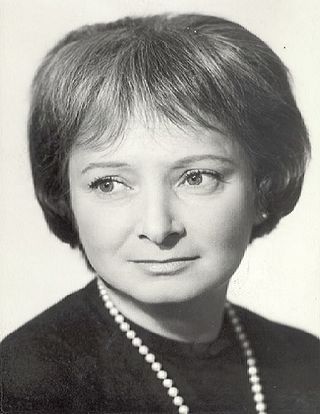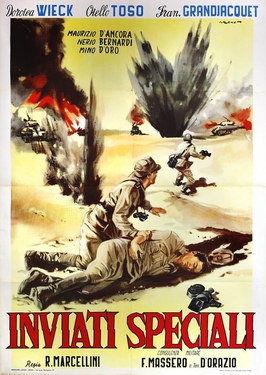
Delia Scala was an Italian ballerina, actress and singer who played a leading role in the nascent commedia musicale.

Luigi Comencini was an Italian film director. Together with Dino Risi, Ettore Scola and Mario Monicelli, he was considered among the masters of the "commedia all'italiana" genre.
Umberto Notari (1878-1950) was an Italian journalist, writer, and editor.

Linda Sini was an Italian actress.

Goodnight, Ladies and Gentlemen is a 1976 French-Italian satirical comedy anthology film. It comprises twelve episodes on themes of corruption in various Italian institutions, each by a different writer and director collectively credited as "Cooperativa 15 Maggio". The episodes are a satire of a typical programming day of an Italian public broadcaster, with a fictional TG3 journalist interviewing a number of the other characters. The film stars Vittorio Gassman, Ugo Tognazzi, Nino Manfredi, Paolo Villaggio, Marcello Mastroianni, Senta Berger, Adolfo Celi, and Felice Andreasi.

The Knight Has Arrived! is a 1950 Italian comedy film directed by Mario Monicelli and Steno and starring Tino Scotti, Silvana Pampanini and Nyta Dover.
The Gates of Heaven is a 1945 Italian drama film directed by Vittorio De Sica.

Luigi "Gino" Bramieri was an Italian comedian and actor. He was especially known as a television comedian, but also performed in theatres, on radio, and in about thirty movies. He was nicknamed "Il Re della barzelletta" for his burlesque comic style, which was largely based on his skill at telling funny stories. His jokes were sometimes as quick as a cut and thrust, and bordering on surrealism. They have been collected in a series of books, such as 50 chili fa.

Anna Maria Orso was an Italian film actress whose career in international and Italian cinema spanned more than fifty years.

Time of Vacation is a 1956 Italian comedy film directed by Antonio Racioppi, at his directorial debut.

Luigi Visconti, better known by his stage name Fanfulla, was an Italian actor and comedian.

The Ferocious Saladin is a 1937 Italian "white-telephones" comedy film directed by Mario Bonnard and starring Angelo Musco, Alida Valli and Lino Carenzio. The film was made at Cinecittà in Rome. On 28 April 1937, Benito Mussolini visited the newly completed studio. Along with the historical epic Scipio Africanus, this was one of the films he saw being made. The film, a vehicle for the Sicilian comedian Angelo Musco, is about an unsuccessful old comedian forced to find another work. While he is selling cakes in a theatre, the audience discover the highly sought-after collectible cards of "The Ferocious Saladin". Inspired by the event, the comedian sets up a successful comic piece on stage.

Eternal Melodies is a 1940 Italian historical drama film directed by Carmine Gallone and starring Gino Cervi, Conchita Montenegro and Luisella Beghi. It was one of several musical biopics directed by Gallone. The film was shot at Cinecittà in Rome.

To Live is a 1937 Italian musical drama film directed by Guido Brignone and starring Tito Schipa, Caterina Boratto and Nino Besozzi. The film is noted for its title song, composed by Cesare A. Bixio. It was distributed by the Italian subsidiary of MGM.

Francesco "Checco" Rissone was an Italian film, stage and television actor.

Rosa Pisano was an Italian stage, film and television actress.

Pina Piovani was an Italian stage and film actress. She was married to the actor Giulio Battiferri.

Special Correspondents is a 1943 Italian romantic thriller film directed by Romolo Marcellini and starring Dorothea Wieck, Otello Toso and Maurizio D'Ancora. It was produced as a propaganda film in support of the Italian war effort during the Second World War, released a few months before the overthrow of Benito Mussolini's regime.
Lorenzo Barotti was an Italian Jesuit priest, historian, and poet.















